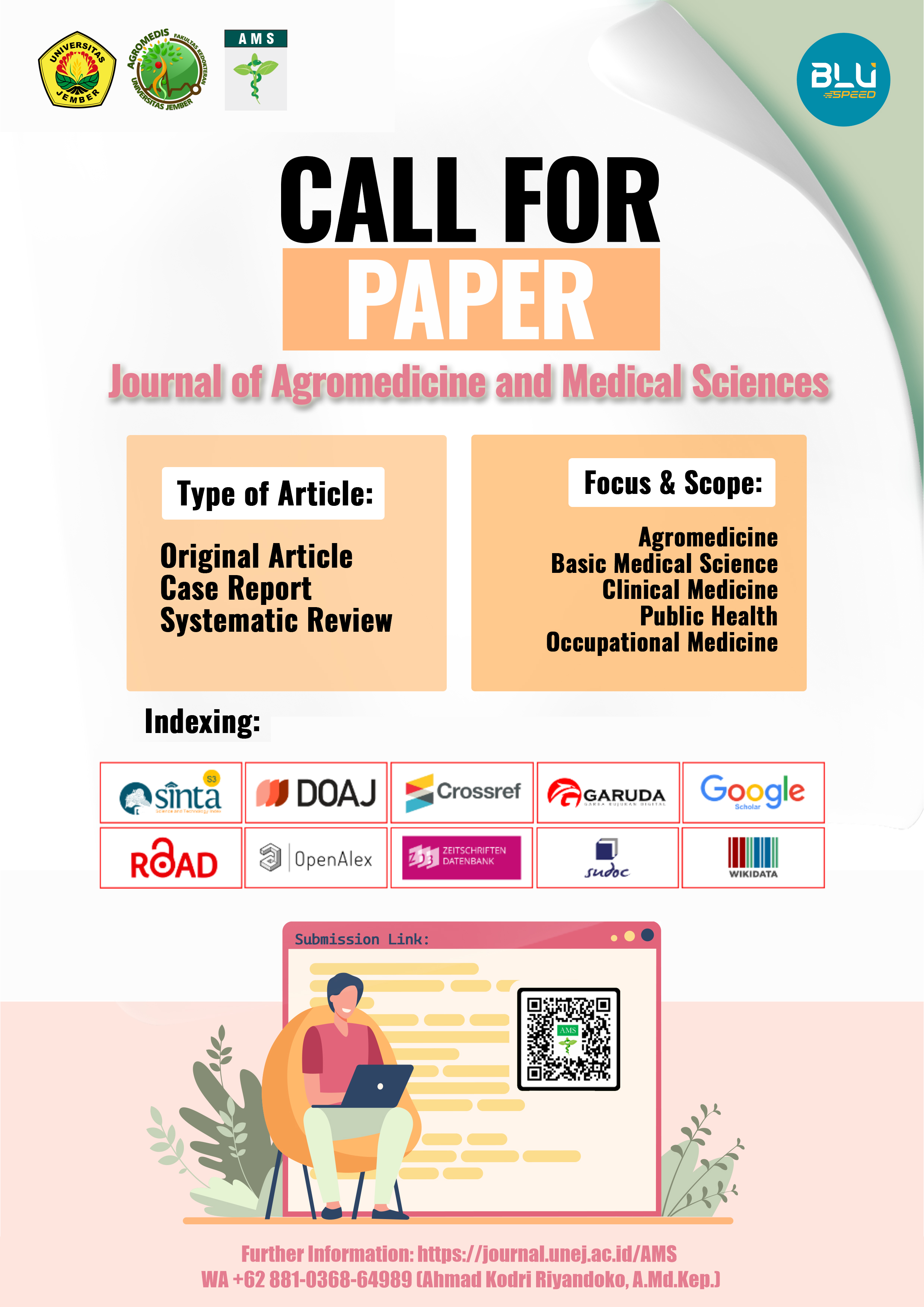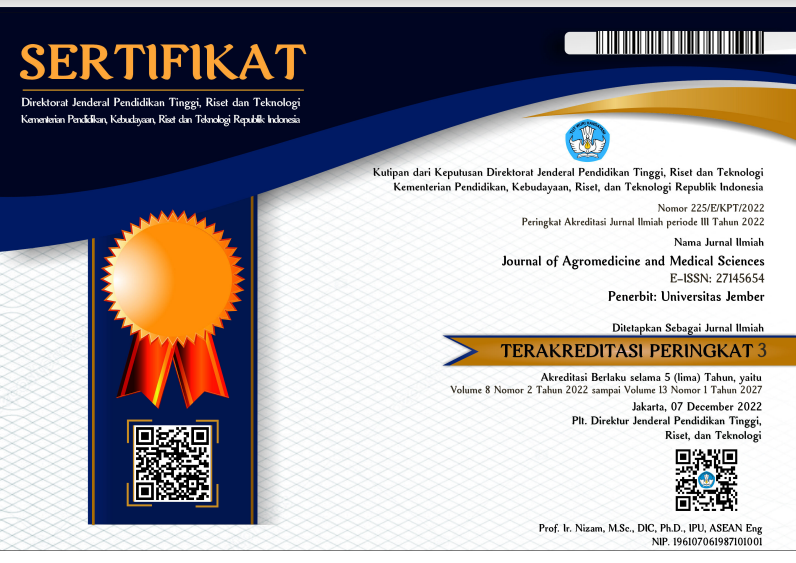Reliability of Using the Scabies Detection Form (DESKAB) in Islamic Boarding Schools
DOI:
https://doi.org/10.19184/ams.v10i3.4750Keywords:
DESKAB, diagnosis, non-medic, scabiesAbstract
Scabies is an infectious skin disease caused by the Sarcoptes scabiei. This mite infestations not only cause skin damage, but can develop into local, even systemic skin infections. An instrument for early detection of scabies is very important in preventing transmission and complications, especially in communities such as Islamic boarding schools. This study aimed to analyze the reliability of the scabies detection form (DESKAB) between Madrasah Aliyah female student rater and dermatovenerologist rater. Based on the results of the examination and Cohen's kappa test, a coefficient of 0.84 was obtained, which means that the level of reliability of the DESKAB form is strong, and a p value of 0.019 means that there is agreement in the perception of the diagnosis of scabies by the two raters. The DESKAB form can be recommended as an early detection instrument for non-medical personnel before being confirmed by medical personnel.





















